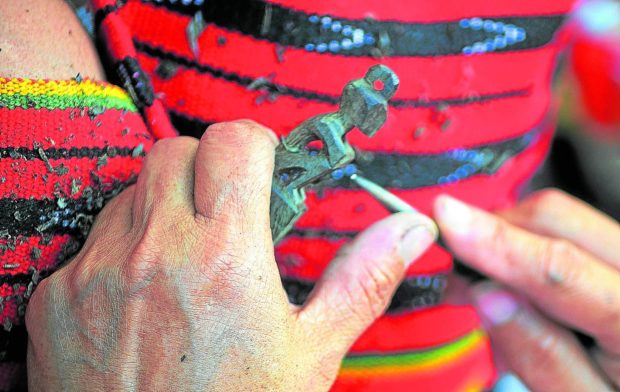Demand for skills training up due to pandemic – Tesda chief

IFUGAO TALENT Ifugao men, women and children are skilled in woodcarving, whether in shaping miniature “bul-ol” (rice granary guardian) meant as trinkets or souvenirs, or creating furniture and household items. The province’s carved and woven products are usually displayed during festivals and community rituals. —EV ESPIRITU.
BAGUIO CITY, Benguet, Philippines — Cordillera enterprises like loom weaving and woodcarving are being developed into vocational courses as more people trained themselves in practical skills to survive the COVID-19 pandemic, Secretary Isidro Lapeña, director-general of the Technical Education and Skills Development Authority (Tesda), said on Tuesday.
According to Lapeña, the government is bracing for a spike in demand for skills education as the economy reopens now that infections start to decline and many local governments hit their targets for herd immunity. He said the pandemic disrupted the business landscape.
“We suddenly saw long lines of delivery motorcycles in the streets [during the Luzon lockdown],” Lapeña said at a briefing here to illustrate how skilled workers were needed by new industries that were born to replace industries that died in the pandemic.
In the Cordillera, skills that support business which are unique to the region, such as traditional weaving and coffee production, are scheduled to be introduced in 2022, said Jeffrey Ian Dy, Tesda Cordillera director.Lapeña said the agency was also collaborating with other education agencies like the Department of Education and the Commission on Higher Education to manage the impact on the future workforce when schools closed because of the quarantines.
Mapping
A skills mapping program, he said, is being undertaken to establish how and why people are seeking new skills.
Article continues after this advertisementPeople trained by Tesda have a 70 percent to 80 percent employability rating, Lapeña said, In Tesda’s 2020 study of employment by its Technical-Vocational Education and Training graduates, the agency estimated that 71.2 percent of the 2019 graduates were active in the labor force.
Article continues after this advertisementBut the study also said about a third of unemployed 2019 Tesda graduates indicated they lost their jobs because of COVID-19.
Lapeña said Tesda was one of the first agencies tapped to address the high unemployment spawned by the lockdowns and when overseas workers started returning home.
He said 1.379 million people, many of them migrant workers, enrolled in online vocational courses in 2020.
Many of last year’s vocational students learned cooking and baking to start online businesses, Lapeña added.